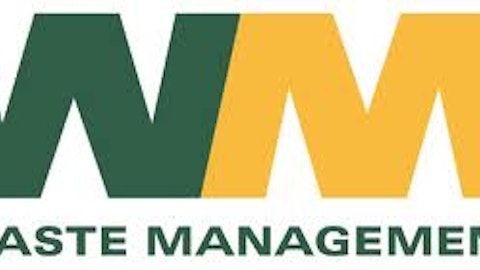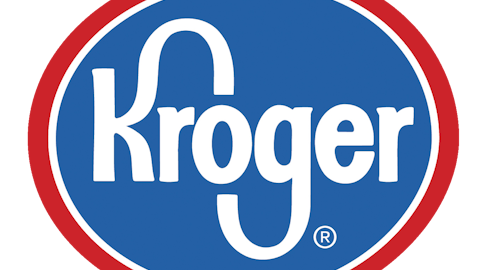Large companies have been looking for ways to increase profitability in every way possible. Some are doing it by shaking up the types of product offerings, while others are making use of resources that were otherwise unproductive. The techniques great management teams use have been helping drive profits in big ways.

Increase margins
International Business Machines Corp. (NYSE:IBM) is a much different company today, than it was 10 years ago. International Business Machines Corp. (NYSE:IBM) lead companies to utilize the power of the internet with sales of their eBusiness solutions to increase the top line, and use the power of their mainframe systems to process those orders and maintain a business. It was truly a one stop shop for Corporate America’s IT departments.
Fast forward 10 years, International Business Machines Corp. (NYSE:IBM) has sold off its PC division to Lenovo, and is rumored to be selling off its low end server business as well. International Business Machines Corp. (NYSE:IBM) has also been on fire recently picking up small bolt-on acquisitions on its software side of the house.
Those software acquisitions fit IBMs model perfectly, purchase a product that isn’t available to a lot of customers, and then use its distribution network to springboard the value of that computer code. As IBM shifts to become a more software orientated business, its revenue can remain the same, but its profitability can skyrocket, as the variable cost for copying software is virtually zero.
IBM’s other strategy to increase earnings is to repurchase shares hand over fist. IBM has repurchased nearly 4% of its shares outstanding each year for the past 7 years. This has lead to a decrease of shares outstanding of nearly 30%. Between these two seemingly simple strategies, IBM’s management has maintained that it will continue to grow its earnings to $20 per share by the end of 2013. If IBM is able to hit that mark, it will be an increase of 15% per year, for a decade. Not bad for a company that is over 100 years old.
Turn waste to treasure
Waste Management, Inc. (NYSE:WM) provides collection, disposal and recycling services across North America. This company competes with local municipalities and other large corporate waste collection services like
Waste Management, Inc. (NYSE:WM) and Republic Services, Inc. (NYSE:RSG) both operate similar business models in signing contracts with customers to both collect waste and transport it to either a recycling plant or land fill. Between the two trash titans, Waste Management, Inc. (NYSE:WM) stands at $19 billion while Republic Services, Inc. (NYSE:RSG) has a market cap of $12.4 billion. Waste Management, Inc. (NYSE:WM) has an operating margin of 13.5%, and pays out 81% of its earnings to support a dividend of 3.6%, while Republic Services, Inc. (NYSE:RSG) has operating margins of 14% and pays out 60% of its earnings, supporting a dividend of 2.8%.
Waste Management, Inc. (NYSE:WM) and Republic Services, Inc. (NYSE:RSG) both have plans to convert their fleets to run off of natural gas to reduce costs, and to generate a portion of that gas from the landfills that they operate. Waste Management, Inc. (NYSE:WM) owns nearly four times the landfill space that Republic Services, Inc. (NYSE:RSG) does, and that gives them the edge when it comes to natural gas generation.
Waste Management also has more one-sort recycling areas that allow customers in those districts to throw all of their recyclables into one container, which is sorted at a recycling plant. This has increased the number of participants recycling, and thus the volume of material that Waste Management can then turn around and sell on the wholesale market, diversifying revenues.
When it comes to trash, Waste Management is a better run company than its competitor, Republic Services. It is further along in its transition to natural gas fleets. Waste Management boasts more than 2000 CNG trucks, with over 16,000, 85% of their fleet, more on the slate to be converted.
Republic Services does have one advantage over Waste Management. The company currently pays out only half of its earnings in the form of a dividend, whereas Waste Management pays out 82%. This does give Republic Services an advantage if the economy were to slow down, as it wouldn’t be as at risk to cut its dividend for income investors.
Waste Management has also been using natural gas produced at its landfills to become the number one generator of renewable fuels, producing more units of energy from its natural gas mines than the entire amount generated from solar last year. Waste Management has been one green company.
Utilize unproductive space
The words Wal-Mart Stores, Inc. (NYSE:WMT) and solar energy don’t typically find themselves in the same sentence, but as it turns out, Wal-Mart Stores, Inc. (NYSE:WMT) is the largest owner of commercial solar power generation. Wal-Mart Stores, Inc. (NYSE:WMT) has over 200 of its rooftops of its 4,500 stores in the U.S. setup with solar panels and plans to increase this number going forward. Wal-Mart Stores, Inc. (NYSE:WMT) recently announced a deal with SolarCity to install nearly all of its California stores with solar panels.
Wal-Mart Stores, Inc. (NYSE:WMT)’s 4,300 rooftops that are currently unproductive in the U.S., and the retailing giant is taking steps to change that, and saving money in the long run. Wal-Mart Stores, Inc. (NYSE:WMT) and other retailers will be installing more of these solar installations as a way to decrease costs and improve margins. A Wal-Mart store that has a solar attachment can save nearly 50% of its daily energy cost, potentially saving the store thousands of dollars per year. This action by itself will not substantially move the needle at Wal-Mart, but it is the sum of these small actions that made Wal-Mart the retail giant it is today.
The 800 pound gorilla of retail makes its billions by selling large volumes of products with low margins. Reducing their electric bill will allow the retailer to reduce expenses and ultimately reward both customers and shareholders with decreased prices in the store, and greater capital available to shareholders at the end of the day
Foolish bottom line
All sectors of the economy have been turning over every rock trying to supplement their earnings. Well run companies are typically the first movers in these areas, and will lead their investors to meet their financial goals. Wal-Mart and Waste Management have been turning previously unproductive assets into energy, while IBM has been shifting its product mix to realize higher and higher profit margins. The creative decisions these management team tortoises have been making will reward shareholders for years to come.
Wes Patoka owns shares of International Business Machines. The Motley Fool recommends Republic Services and Waste Management. The Motley Fool owns shares of International Business Machines. and Waste Management. Wes is a member of The Motley Fool Blog Network — entries represent the personal opinion of the blogger and are not formally edited.
The article Paving the Way to Sustainable Earnings Growth originally appeared on Fool.com is written by Wes Patoka.
Copyright © 1995 – 2013 The Motley Fool, LLC. All rights reserved. The Motley Fool has a disclosure policy.





